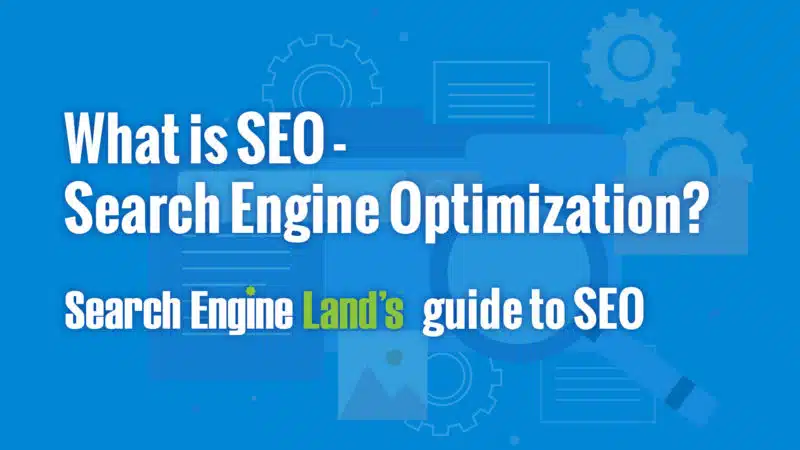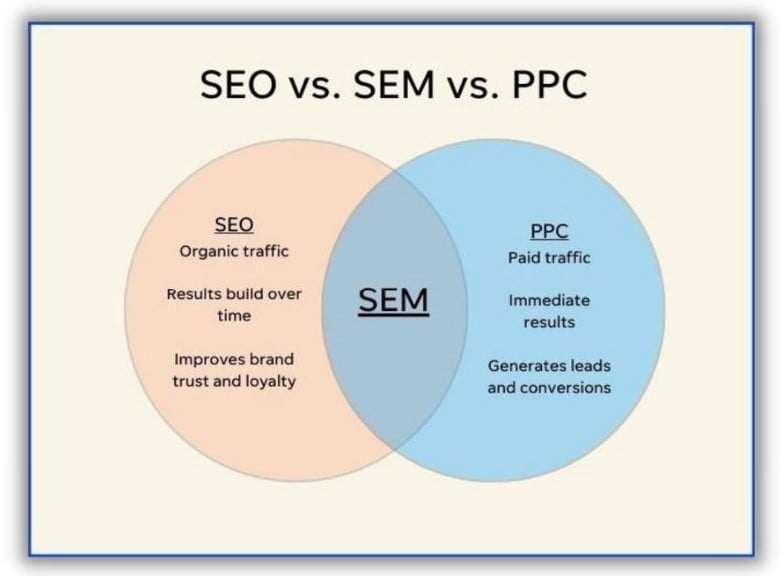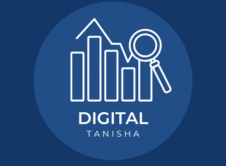What Is SEO – Search Engine Optimization?
SEO stands for Search Engine Optimization and helps search engines understand your website’s content and connect it with users by delivering relevant, valuable results based on their search queries.
The goal of SEO is to rank on the first page of search engine results pages (SERPs) for the most relevant and valuable keywords to your target demographic, driving qualified traffic to your site.
SEO is considered a digital marketing practice and can be applied to any website. It helps improve a site’s visibility on search engines like Google and Microsoft Bing. Whether your site promotes products, offers services, or shares expert knowledge on a specific topic, SEO can help drive traffic and increase online visibility.
The better visibility your pages have in search results, the more likely you are to be found and visited.
This introductory guide will explain in more detail what SEO is and what it entails in 2025.
Technology is constantly evolving, which means that websites – and the way they are structured – evolve. So do the devices we use to access search engines.
A web search can be voice activated and a click may be a tap on a mobile phone screen. Even the results we see from our search engine of choice may be summarized by artificial intelligence (AI).
How is SEO different from SEM and PPC?
SEM and PPC are two other common terms you will read about often here on Search Engine Land and hear about in the larger search marketing community.
It can also be helpful to distinguish what SEO is from what it is not.
Here, we’ll explain the difference in terminologies, what these abbreviations mean and how they extend to difference.

SEO vs. SEM
SEM stands for search engine marketing – or, as it is more commonly known, search marketing.
Search marketing is a type of digital marketing. It is an umbrella term for the combination of SEO and PPC (pay-per-click, e.g. Google Ads) activities that drive traffic via organic search and paid search, respectively.
So how do SEO and SEM differ? Technically they aren’t different – SEO is simply one-half of SEM:
- SEO: Driving organic results clicks from search engines.
- SEM: Driving organic and paid results clicks from search engines.
- PPC: Driving paid results clicks from search engines.
Here’s the best way to think about SEM, SEO and PPC:
Imagine SEM is a coin. SEO is one side of that coin. PPC is on the flip side.
SEO vs. PPC
PPC: stands for pay-per-click – a type of digital marketing where advertisers are charged whenever one of their ads gets clicked on.
Advertisers bid on specific keywords or phrases that they want their ads to appear for in the search engine results.
When a user searches for one of those keywords or phrases, the advertiser’s ad (paid listing) will appear among the top results.
So again, if we think of search marketing as a coin, SEO and PPC are two sides of the same coin:
- With PPC, the advertiser pays when a search user clicks their paid listing.
- With SEO the search result listing has not been directly paid for, though SEO is sold as a service and the process of optimizing pages and websites takes time and investment, so it is important to understand that organic search isn’t “free.”Some people have debated “SEO vs. PPC” – which channel is more valuable or has a better return on investment (ROI). However, SEO and PPC are complementary digital marketing channels. Ideally, you should always choose both (as long as your budget allows it).
As we mentioned before, the terms SEM and PPC are used within the industry interchangeably. However, that isn’t the case here on Search Engine Land.
Whenever we mention “SEM,” it will be because we’re referring to both SEO (organic search) and PPC.

Why is SEO important?
SEO is a critical marketing channel.
- Organic search delivers 53% of all website traffic, according to a 2019 BrightEdge study.
- More than 8.5 billion searches happen every day on Google Search and Google owns 91% of the global search engine market.
With such incredible audience reach, there’s no surprise that in turn, the global SEO industry is forecast to reach a staggering $122.11 billion by 2028.
SEO drives real business results for brands, businesses and organizations of all sizes. This is because the act of searching, or the search user interface (be it a typed, voiced or image query format) has become second nature for internet users worldwide, as the primary way to access the information sought, within the sea of billions of webpages (4.3 billion pages on the indexed web, as of September 2024).
Whenever people want to go somewhere, do something, find information, research or buy a product/service – their journey typically begins with a search.
However, search is incredibly fragmented – particularly for consumer-intent activities. Users may search on traditional web search engines (e.g., Google, Microsoft Bing), social platforms (e.g., YouTube, TikTok) or retailer websites (e.g., Amazon).
In fact, last year 56% of U.S. online shoppers started their product search on Amazon, compared to 46% who started on a search engine like Google. Also of note from that same research:
-
- 37% start on Walmart.
- 25% start on YouTube.
- 20% start on Facebook.
